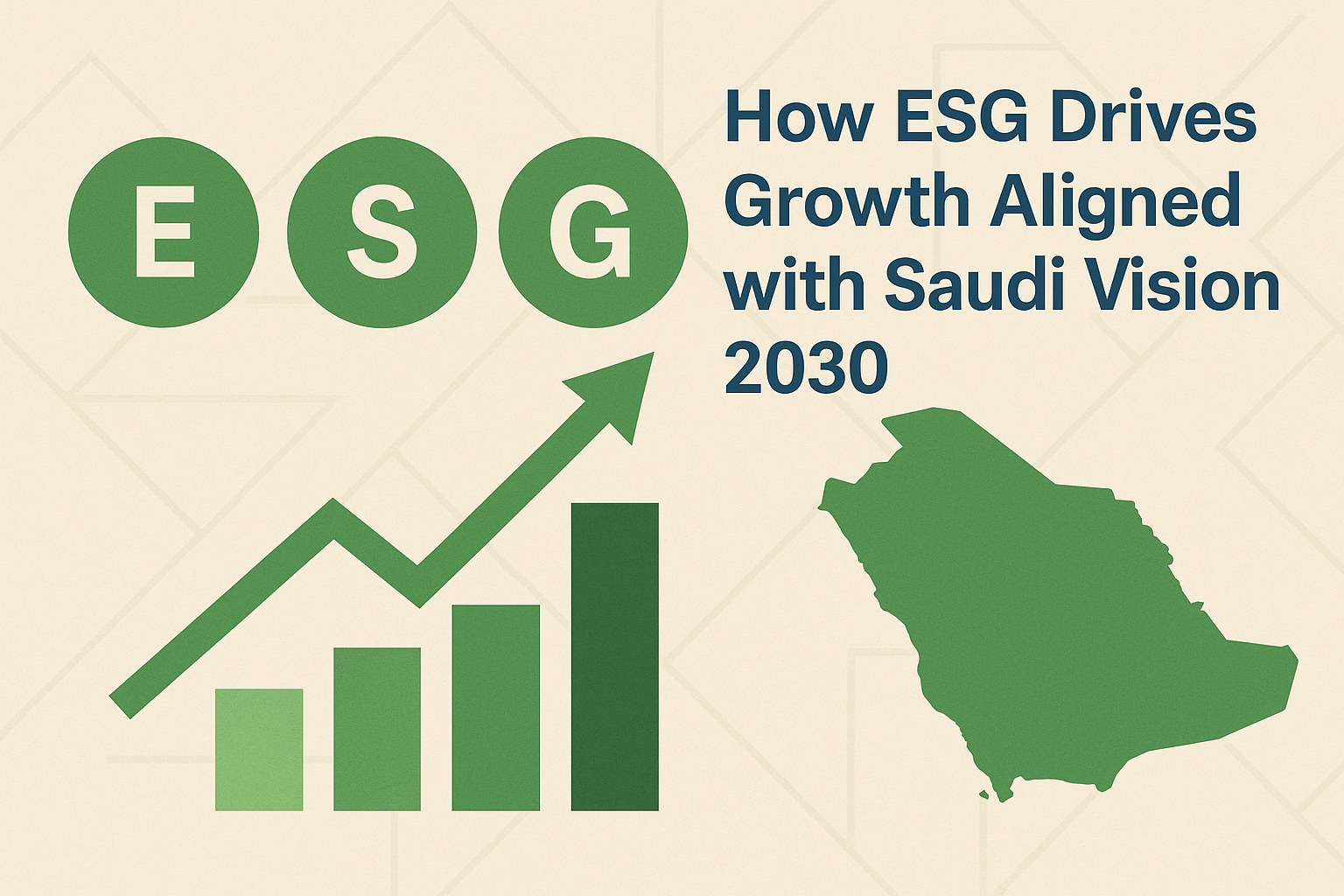
Introduction
Did you know that over 70% of global investors consider ESG (Environmental, Social, and Governance) criteria before making decisions? In Saudi Arabia, this trend is accelerating, driven by Vision 2030’s push toward a diversified and sustainable economy.
As the Kingdom undergoes significant transformation, ESG is no longer a nice-to-have but a must-have for forward-thinking organizations. Regulatory bodies like the Capital Market Authority (CMA) and Tadawul are introducing ESG disclosure requirements, signaling a market-wide shift. For business leaders and governance professionals, now is the time to act.
What is ESG?
ESG stands for Environmental, Social, and Governance — three key factors that measure the sustainability and ethical impact of an investment or business practice.
-
Environmental: Impact on nature (e.g., carbon emissions, energy efficiency)
-
Social: Treatment of employees, community involvement, and diversity
-
Governance: Corporate ethics, board structure, compliance practices
In essence, ESG provides a framework to align business operations with long-term societal and environmental goals.
Why ESG Matters in Saudi Arabia
Alignment with Vision 2030
Saudi Arabia’s Vision 2030 outlines a bold roadmap for sustainable economic development. ESG fits perfectly within this vision by:
- Supporting economic diversification beyond oil
- Enhancing transparency and governance standards
- Attracting global investors focused on sustainability
Regulatory Momentum
Institutions like the CMA, Tadawul, and the Saudi Green Initiative are pushing ESG to the forefront. Mandatory ESG reporting is on the horizon, creating both opportunities and responsibilities for businesses.
Market Demand
Consumers and investors alike are prioritizing ethical and sustainable companies. According to PwC, 86% of Middle East CEOs recognize the importance of ESG to long-term success.
Key Challenges for Businesses
Lack of Awareness: Many SMEs in Saudi Arabia still lack understanding of ESG’s value.
Data Management: Inconsistent data collection and reporting mechanisms.
Regulatory Compliance: Keeping up with evolving standards is resource-intensive.
Cost of Implementation: Short-term investment can be a barrier for smaller firms.
Solutions and Best Practices
Solutions and Best Practices
Step-by-Step ESG Integration
- Conduct an ESG Audit: Understand your current standing.
- Set SMART Goals: Align with Vision 2030 KPIs.
- Build Governance Structures: Assign ESG roles at the board and executive levels.
- Invest in Technology: Use ESG reporting tools and GRC platforms.
- Engage Stakeholders: Communicate with investors, employees, and regulators.
Recommended Frameworks
- GRI Standards for global sustainability reporting
- SASB for industry-specific metrics
- TCFD for climate-related financial disclosures
Case Studies in Saudi Arabia
SABIC
One of the world’s largest petrochemical manufacturers, SABIC has implemented robust ESG strategies, focusing on circular economy initiatives and transparent reporting.
NEOM
This mega-project is built on ESG principles—zero carbon cities, renewable energy, and digital governance—all aligned with Vision 2030.
STC (Saudi Telecom Company)
STC’s ESG strategy has helped attract sustainable financing and improve brand trust, especially among younger consumers.
Saudi Aramco
Saudi Aramco has launched several carbon capture and storage (CCS) projects as part of its broader ESG roadmap. The company is also enhancing water recycling systems and reducing methane emissions to align with Vision 2030 sustainability goals.
Riyad Bank
Riyad Bank issued its first green bond in 2023, raising $750 million to fund eco-friendly projects in Saudi Arabia. The bank has committed to ESG transparency and has set long-term targets to reduce its carbon footprint and support sustainable development financing.
Conclusion: Taking the Next Step
The convergence of ESG and Vision 2030 presents a unique opportunity for Saudi businesses to future-proof their operations and contribute to national development. From enhanced investor trust to stronger compliance and brand reputation, ESG is the growth engine of the future.
